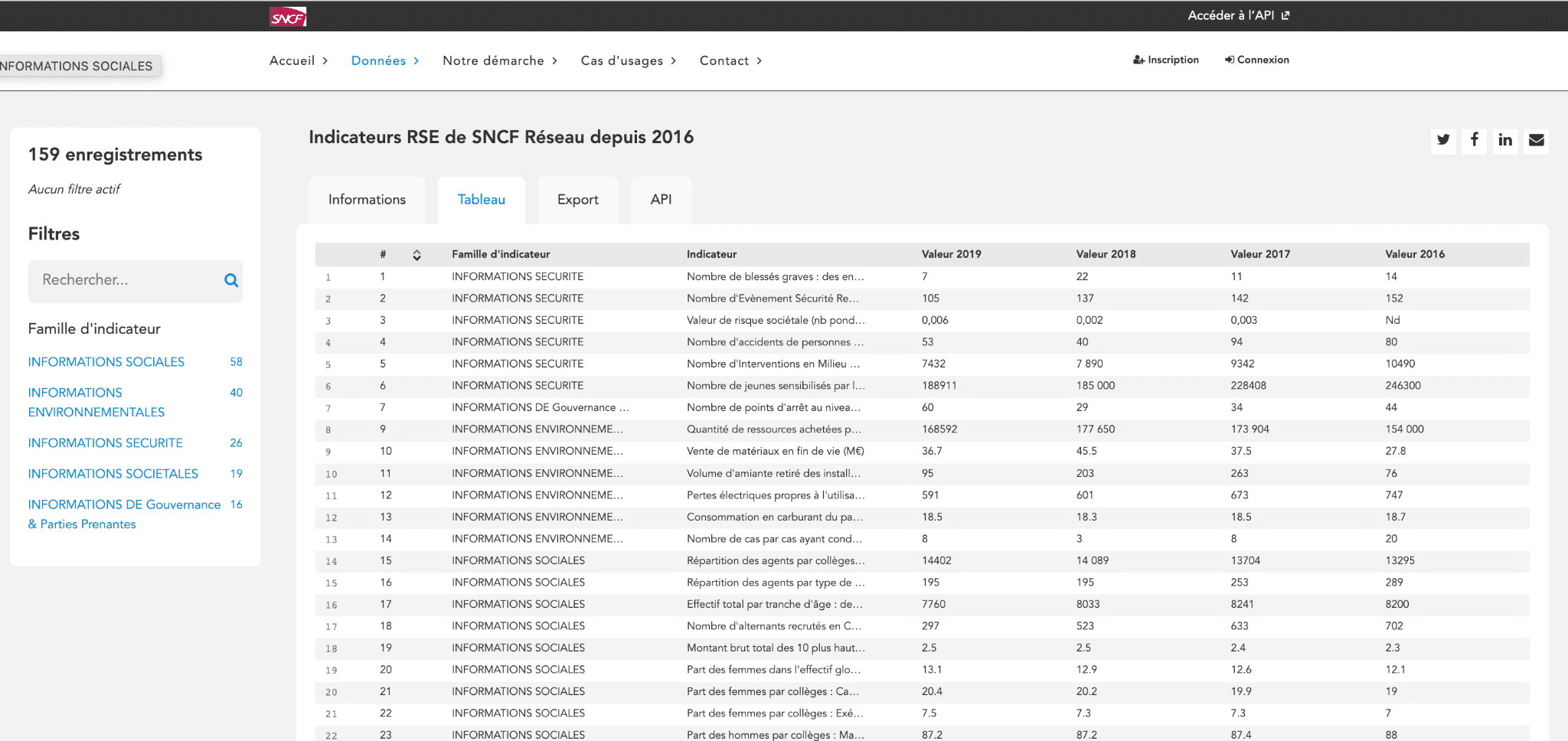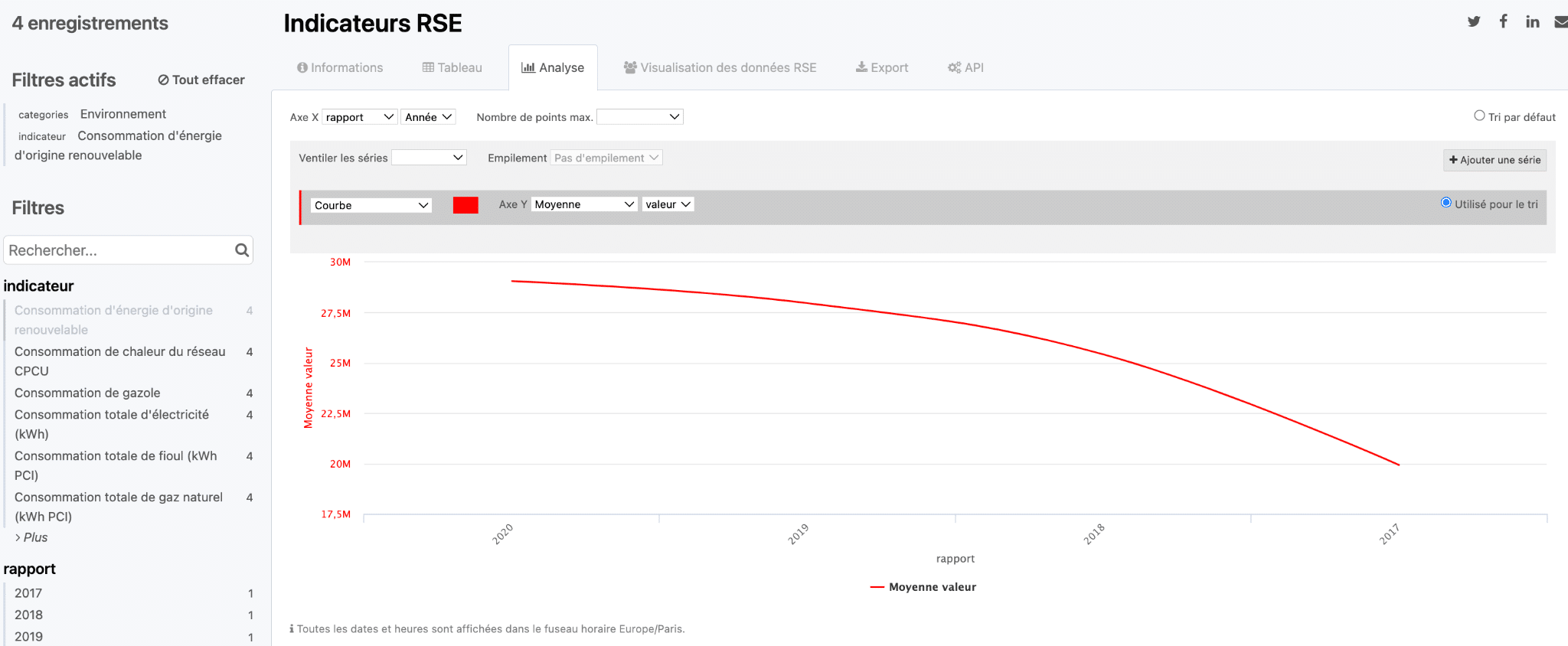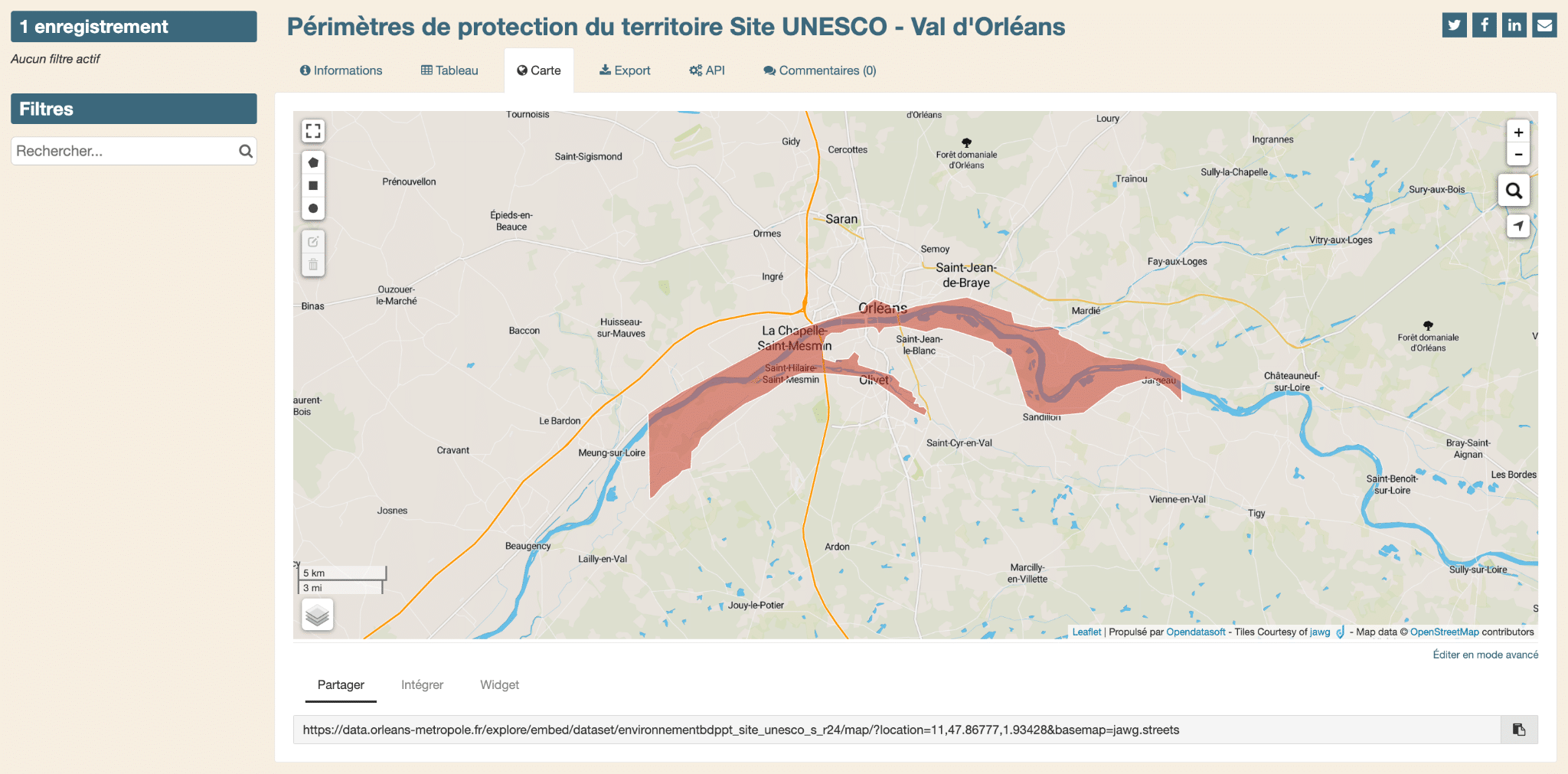Impact, sustainability, and CSR: Using data to build the organizations of the future
Our article explains best practices for implementing an effective CSR strategy tailored to your needs, using examples from Kering, SNCF, MAIF, EDF, and the city of Orléans.

Corporate social responsibility (CSR) is now a top priority for businesses. This is thanks to both a need to meet regulatory requirements and—more importantly—to lay the groundwork for building more resilient and competitive organizations capable of anticipating and responding to economic, societal, and environmental challenges.
Given the current focus on environmental, social and governance (ESG), many organizations are proactively demonstrating the positive impact they have on the environment or society. These “mission-driven companies” have added a social purpose alongside their profit-making objective.
Data is a strategic resource for demonstrating this focus and purpose. Using large amounts of data in-house allows organizations to conduct more sophisticated analysis to address these challenges and make better decisions. It also allows for the measurement, management and communication of CSR actions enabling greater stakeholder engagement.
Our article explains best practices for implementing an effective CSR strategy tailored to your needs, using examples from Kering, SNCF, MAIF, EDF, and the city of Orléans.
What is Corporate Social Responsibility (CSR)?
CSR’s goal is to contribute to sustainable development, including societal health and well-being, while taking stakeholder expectations, current regulations, and international standards into account.
For more than 20 years, a range of regulations have been put in place by countries around the world to mandate standards and targets for different parts of CSR. These include areas as diverse as reducing emissions, increasing workplace/management diversity, protecting the environment and becoming carbon neutral across activities.
The most effective and relevant CSR approaches, however, stem from a company’s desire to go beyond simply meeting regulations to address current (and future) societal and environmental concerns.
What are the challenges to effective CSR?
More and more people today want to work for a company with a clear purpose that aligns with their own beliefs. In the midst of the current Great Resignation, research shows that 93% of employees who said that their company was making a strong positive impact in this world were planning to stay in their jobs.
According to a recent Mercer study, 96% of employees expect their employer to lead a sustainable development agenda that considers financial and social outcomes, diversity and equity, and environmental impact.
But the movement goes much deeper. Take the findings of the 2022 Edelman Trust Barometer, which found 60% of employees expect their CEO to speak out on societal issues and consumers want companies to make a greater stand around climate change and economic inequality.
To meet these new citizen-driven expectations, many organizations are redefining their purpose to deliver an impact beyond generating profit, whether it is creating a more equitable world, achieving the goal of net-zero emissions, or protecting consumer privacy.
Becoming “purpose-driven” has become a strategic priority for businesses in order to gain competitive advantage and build the organization of the future.
What needs to underpin this approach?
Communicating on its impact
It quickly became unthinkable for a company not to have a website to showcase its business in the early 2000s. In the same way businesses now require a platform to share information about their environmental impact to as many people as possible.
Consumers, citizens, employees, future talents, and partners today require concrete, fact-based information in order to assess your organization’s CSR roadmap and its societal and environmental impact.
That means CSR departments must go beyond traditional, static reporting, to provide understandable, accessible and up to date visualizations that can drive a constructive and effective dialogue with all of a company’s stakeholders.
Measuring the success of your CSR strategy and engaging stakeholders
Senior management within organizations have launched significant and ambitious CSR and sustainability projects in order to express their purpose, define strategic objectives, identify KPIs appropriate to the company’s activity, and commit to medium- and long-term goals.
They now need tangible, contextualized ways to assess progress around their roadmap’s implementation and its impact. This is a critical step in ensuring the long-term viability of your CSR and ESG projects.
Delivering this requires a data experience platform to collect data, compare it to key elements of your business, and publish it in understandable formats that allow insights and recommendations for action to be implemented quickly.
This process of democratizing access to your CSR data by sharing it internally will also allow you to engage and empower all of your employees in the process. Strong internal communications are vital if you are to demonstrate your ESG credentials and attract and retain employees that want to work for committed, purpose-driven organizations. Communications should start by announcing objectives and explaining them through tailored workshops – but to keep employee engagement and enthusiasm you need to provide visibility into the roadmap’s implementation. By providing them with the means (tools) and knowledge (data) to measure progress and see how they can contribute, employees can therefore become agents of change.
Involving everyone in CSR actions
It is critical to include the company’s environmental, social and governance performance in its value proposition – it has to be fully integrated into the organization’s daily, operational activities. This is a prerequisite for transitioning from seeing CSR as a nice to have to making it a component of strategic development.
It is not enough to see CSR as solely a risk or regulatory issue that needs to be managed. It needs to be seen as an opportunity, and that means involving all stakeholders in your CSR project.
Failing to engage with key groups across your supply chain is one of the key reasons that organizations fail to make an impact with CSR. This starts with data mapping, collecting, measuring, and acting on the environmental footprint across the company’s value chain, including subsidiaries, suppliers, and subcontractors is complex to achieve successfully.
Relationships with suppliers and subcontractors, in particular, are time-consuming to manage. However, if the entire value chain (partners, subsidiaries, suppliers, subcontractors, customers, etc.) is not fully engaged, the impact is severely limited.
To overcome this challenge it is critical to provide transparent information that can be shared across your ecosystem and supply chain. Data needs to be available so that it can be shared through data services that automatically deliver it in the right ways for particular stakeholders. Providing high value-added data in this way not only helps CSR, but also makes you more competitive and attractive to work with moving forward.
What are the uses and benefits of data democratization for your CSR strategy?
To meet these challenges, making your data widely accessible and usable internally and externally is vital.
Promoting your CSR strategy with open data
Open data is a powerful tool for communicating your CSR actions. It provides an opportunity to raise your visibility and communicate your commitments and impact to customers, prospective employees, and citizens who are not data experts.
By sharing data in the right ways you will be able to demonstrate the effectiveness of your actions, ensure continuous and transparent monitoring, and improve your brand image by publishing relevant visualizations (dashboards, maps, data stories) in the right places (website, applications, or in the form of exports or APIs for skilled experts). In the long run, this approach allows you to both attract new customers and retain existing ones whose purchasing decisions are increasingly influenced by CSR factors.
Self-service data to drive your CSR strategy internally
You can use a data experience platform to create collaborative dashboards and dataviz to drive and demonstrate the effectiveness of your CSR actions. By enriching your data, contextualizing it, and making it understandable to everyone internally through data visualizations, you enable every employee to participate in the CSR strategy.
Furthermore, you must be able to provide your employees with the tools they need to make better decisions. Setting up internal portals allows you to meet this need while also providing a true strategic tool to implement your CSR strategy.
In addition, it is possible to provide immediate and tangible information in a targeted manner through differentiated access to optimize the performance of each employee and department. By making information available in real-time you can engage your employees in the process on an ongoing basis.
Data services to engage your partners in your CSR strategy
Closer relationships with partners are vital in order to better understand and measure external impacts on your CSR program. Developing data services for external stakeholders simplifies the sharing of mission-critical information and opens the door to new applications in your ecosystems.
Implementing data services tailored to your partners’ needs allows you to have a positive impact on their activities while minimizing any negative impacts caused by their activities. It is also necessary to align partners with regulatory requirements and environmental performance obligations.
Data services make information sharing and real-time collaboration with a wide range of actors possible and effective, saving time and increasing efficiency while delivering environmental and social benefits.
Customer successes with the use of CSR data
SNCF announces its future CSR initiatives
Transport operator the SNCF Group outlines its CSR priorities through an open data portal built on our platform, with political, mobility, development, environmental, and dynamic factors all covered.
The data is available in the form of public datasets, as shown below.

This approach has contributed to the company being ranked fifth in the world in terms of CSR performance. All stakeholders benefit from being able to monitor and follow up on the group’s main social and environmental issues in order to manage the CSR strategy.
MAIF publishes its CSR datasets as open data
Mutual insurer MAIF publishes a dataset on its CSR indicators in order to increase transparency and empower everyone to act in the public interest. The data goes back to 2018, and the indicators are divided into three categories: environmental, social, and societal.
The ability to generate simple graphics and data visualizations, as well as reuse this data through APIs, helps the group achieve its goals.

EDF announces its extra-financial commitments
Energy group EDF’s open data portal includes a section devoted to the organization’s extra-financial commitments. In addition to its regular reports, EDF has provided a dataset with many key performance indicators since 2018.
These are classified based on its CSR commitments, such as well-being and solidarity, responsible development, carbon and climate neutrality, resource preservation.
The portal provides ways to track CSR performance for each indicator (value, objective, deadline, etc.). It is possible to generate lists as well as APIs.
This commitment goes above and beyond the requirements of French law, allowing the organization to provide the general public with clear information about the impact of its activities.

Kering develops its CSR project through data: Environmental Profit & Loss
Luxury group Kering’s Sustainability Performance team invested in a methodology for measuring impact, called Environmental Profit & Loss (EP&L). This model enables Kering to measure and quantify the environmental impacts of its operations, which is a significant step towards implementing a sustainable economic model.
EP&L tracks CO² emissions, water consumption, air and water pollution, land use, and waste generation throughout the supply chain, making the environmental impacts of the Group’s activities visible, quantifiable, and comparable. These impacts are then converted into monetary values in order to quantify the use of natural resources.
Kering can use EP&L to guide its sustainable development strategy, improve processes or supply chains, determine if goals are being met, and adapt technology choices.
Because of this approach, the Kering Group is able to communicate information on the impact of its activities to all of its stakeholders, both internal and external. Kering provides a variety of channels for consulting its CSR data, whether in the form of data stories, an open data portal, or a mobile application (myEP&L), offering a transparent approach in a market that is typically very opaque.

The city of Orléans promotes its environmental initiatives through its open data portal
Using the Opendatasoft platform has enabled the city of Orléans to implement a number of open data initiatives. In particular, the municipality communicates on its open data portal about the environment, communities, and local development to improve transparency on these topics.
The general public can access 38 sets of environmental data in a variety of formats to demonstrate the city’s activities around:
- the radio waves emitted by mobile network antennas
- pollutant concentrations hour by hour
- different species of plants around the city
- regional points of interest related to the MOBE (Musée d’Orléans pour la Biodiversité et l’Environnement),
The city of Orléans also provides datasets that explain and outline the actions that is taking to its citizens. This includes a dataset that gathers all municipal decisions, orders and deliberations and provides a list of elected officials. These datasets are available in a variety of formats, such as through these maps:

Through these initiatives, open data is proving to be a very powerful tool for informing citizens, measuring, and explaining public actions.
Conclusion
The advantages of using data to support your CSR strategy and impact are clear. The range of examples highlighted above demonstrate that there are numerous possible applications and benefits of data within ESG.
To improve your CSR data and make a difference, you’ll need a data democratization platform. This technology supplements your data collection, analysis, and storage solutions by providing the “experience” layer required to increase the value of your data in support of your CSR strategies.


